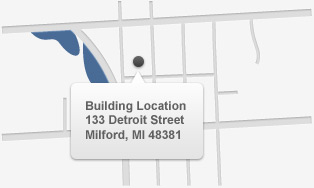-
- “On the Same Page” Weekly Newsletter
- Anger (Ephesians 4:26)
- Renewing the Mind
- Sermons
- Truth-Telling (Ephesians 5:25)
- Book of the Month
God has Called us to:
Forever-Fellowship
All-Week-Long Worship
Day-by-Day Discipleship
Moment-by-Moment Mission

Located across the
street from Starbucks
in Downtown Milford, MI. -
Blog
Covenant
December 12, 2024
Covenant
It is said that we live in a transactional age. I suppose that there can be “fair” transactions, that is, deals that are struck that are good for both parties. But often, transactions are enacted with carrots and sticks. You might agree to a deal based not on what you might gain, but rather on what you hope to avoid.
Covenants are not mere transactions. They are relationships. They are a special kind of relationship, one in which both parties have an expectation of “winning” in the end. Marriage-as-covenant is an example of this, whereby we pledge ourselves to one another for the good of both, being able to enjoy more and accomplish more as a united couple than alone. Of course, love is the oil that aids this relationship.
But I want to talk about the covenantal nature of the believer’s and the church’s relationship to God. Let me give you some Biblical background.
The form of covenants in the OT can be traced to a pattern of covenant used in the greater region at the time called “suzerain/vassal treaties.” There is a great king, and there is a subdued peopole. According to the terms of this relationship, the king pledges himself to be the king of this people whom he has spared, perhaps cared for, and will offer protection even as the people agree to the stipulations of the covenant, or following the king’s rules. God is not bound by this form, but He uses it, even as He uses human language, to accomodate Himself to us and our understanding.
Unsurprisingly, God is the Great King. God entered into covenant relationship with Israel, a slave people whom God would come to regard as His own people. The blessings of fruitfulness and security would flow to them even as they pledged to “have no other gods before Me” and to “make no graven images” and refuse to “take the name of the Lord thy God in vain.” Included here would be the other stipulations of the old covenant found in Exodus and Leviticus (and repeated in Number and Deuteronomy).
This is good for God, not that He needs anything, being Self-sufficient, but according to His desire to form a people for Himself. This is good for the people, because as sinners, they are a mess without Him and stand under His judgment, not His favor. They now become the beneficiaries of being counted as His subjects and His children. They are grateful for His grace, and express that gratefulness through obiedience.
Except they didn’t. And so it seems to be a covenant “on hold;” an interrupted covenant. Scripture seems to indicate that God will keep His promises to this people, but based on a New Covenant and according to the terms of this New Covenant.
In the New Covenant, the Great King sends His Holy Son to be the propitiatory sacrifice for the sins of the people. Due to this sacrifice, the covenant is “kept,” not by the people, but by the Son. God keeps His part, and then, through the Son, He keeps our part as well.
There is one act that Christ does not undertake for us. That is our acceptance of the terms of the covenant, or believing in Jesus. There is not entrance into the covenant apart from faith in Christ.
But we must be clear about what is involved in this faith or receiving. It is true faith and a full receiving. It is not a gesture, but an embrace. It is not an add-on, but a replacement. Jesus becomes to us “wisdom from God, and righteousness and sanctification, and redemption. (1 Corinthians 1:30 NAS95)
This receiving is described in two parts: “if you 1) confess with your mouth Jesus as Lord, and 2) believe in your heart that God raised Him from the dead, you will be saved.” (Romans 10:9 NAS95) We do not believe with our mouths, but with our hearts, from which deeds of gratefulness flow. No grateful deeds, no faith; and no faith, no entrance into the covenant, which is your only lasting and eternal good.
- “Prayer is a sincere, sensible, affectionate pouring out of the heart and soul to God, through Christ, with the strength and assistance of the Holy Spirit, for such things as God has promised, or according to the Word, for the good of the church, with submission, in faith, to the will of God.” - John Bunyan
 in <b>/hermes/bosnacweb04/bosnacweb04ai/b1550/ipw.milfordb/public_html/wp-content/themes/milford/single-blog.php</b> on line <b>62</b><br />
https://milfordbaptist.org/wp-content/themes/milford/images/podcast-arrow.jpg)

